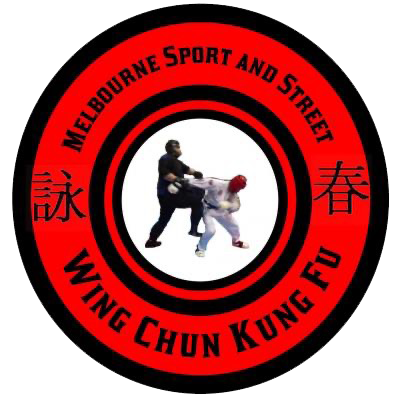Is it hard to learn Wing Chun?
By Maurice Novoa a master under the Yuen Kay Shan, Ip Man and Pan Nam lineages.
Introduction
Wing Chun is a traditional Chinese martial art known for its practicality, efficiency, and emphasis on close-quarters combat. It has gained popularity worldwide for its effectiveness in self-defense situations. If you’re considering learning, you might be wondering: Is it hard to learn?
In this article, we will explore the learning process of this martial arts style and provide insights into the challenges and rewards it offers. So, let’s dive in and discover if it is a difficult martial art to master.
Understanding the Basics of Wing Chun
Wing Chun is characterized by its simplicity and directness. It focuses on using economy of motion, simultaneous defense and offense, and the conservation of energy. The system emphasizes close-range combat, with techniques designed to neutralize opponents quickly and efficiently. Its foundation lies in four key principles: centerline theory, forward energy, simultaneous attack and defense, and using the shortest distance between two points. By mastering these principles, practitioners can effectively overcome opponents of varying sizes and strengths.
The Learning Process
Like any martial art, learning requires dedication, practice, and guidance from a qualified instructor. The complexity of Wing Chun lies in its subtle details and precision. It involves mastering footwork, hand techniques, positioning, and proper body structure. The learning process typically involves progressive training, starting with the fundamental stances, punches, and blocks. As you progress, you’ll gradually incorporate more advanced techniques, such as trapping, grappling, and the use of wooden dummies and other training equipment.
Challenges Faced in Learning Wing Chun
Learning can present several challenges, especially for beginners. Here are some common difficulties you may encounter:
- Coordination and Muscle Memory: Wing Chun requires coordination between different parts of the body, such as the arms, legs, and torso. Developing muscle memory for the precise execution of techniques takes time and consistent practice.
- Sensitivity and Timing: Wing Chun emphasizes sensitivity to an opponent’s movements and precise timing for effective counterattacks. Developing this sensitivity and timing can be challenging and requires continuous training.
- Adaptability: The techniques are designed for close-quarters combat, which may not be as applicable in situations that require maintaining distance or dealing with multiple attackers. Adapting the principles of the style to different scenarios can be a learning curve.
- Patience and Perseverance: Mastering Wing Chun is a journey that requires patience and perseverance. It takes time to develop the necessary skills and to internalize the principles and concepts of the art.
Rewards of Learning Wing Chun
While learning may present challenges, the rewards are significant:
- Practical Self-Defense: Wing Chun equips practitioners with practical self-defense skills that can be effective in real-life situations. Its focus on close-quarters combat and simultaneous attack and defense makes it applicable in street fights and self-defense scenarios.
- Improved Coordination and Body Control: Wing Chun training enhances coordination, body awareness, and control. Through the repetition of techniques and forms, practitioners develop better control over their movements, leading to improved overall coordination and balance.
- Increased Focus and Concentration: The intricate nature of Wing Chun techniques demands focus and concentration. Regular practice can help sharpen your mental acuity and improve your ability to stay present and focused.
- Physical Fitness and Conditioning: The training involves a combination of cardiovascular exercise, strength training, and flexibility. Regular practice can enhance your physical fitness, improve your strength and endurance, and promote overall well-being.
- Mind-Body Connection: The style emphasizes the integration of mind and body. Through training, practitioners develop a deeper connection between their mental and physical states, leading to improved body awareness, control, and self-awareness.
Conclusion
Learning Wing Chun is not without its challenges, but the rewards it offers make it a worthwhile journey. While it may require dedication, practice, and perseverance, the practical self-defense skills, improved coordination and body control, increased focus and concentration, physical fitness and conditioning, and the mind-body connection are all valuable outcomes.
This is a martial art that can be learned by people of all ages and fitness levels. The key to success lies in finding a qualified instructor who can guide you through the learning process and provide personalized feedback and corrections. Regular practice and consistent training are essential to mastering the style and reaping its benefits.
So, is it hard to learn? Like any martial art, it has its challenges, but with the right mindset and commitment, it is an achievable goal. The journey of learning Wing Chun not only equips you with practical self-defense skills but also offers personal growth and development on physical, mental, and emotional levels.
If you’re considering learning Wing Chun, take the first step and find a reputable Wing Chun school or instructor in your area. Start with an open mind, embrace the learning process, and be prepared to invest time and effort into your training. Remember, mastery of any martial art is a continuous journey, and progress comes with dedication, perseverance, and a genuine passion for the art.
In conclusion, while learning Wing Chun may present challenges, the rewards it brings in terms of self-defense skills, physical fitness, coordination, focus, and mind-body connection make it a valuable and fulfilling martial art to learn. So, if you’re willing to embark on a journey of self-discovery, personal growth, and practical self-defense, learning Wing Chun can be a rewarding experience that enriches various aspects of your life. Embrace the challenge, commit to the process, and let Wing Chun empower you both on and off the training floor.

